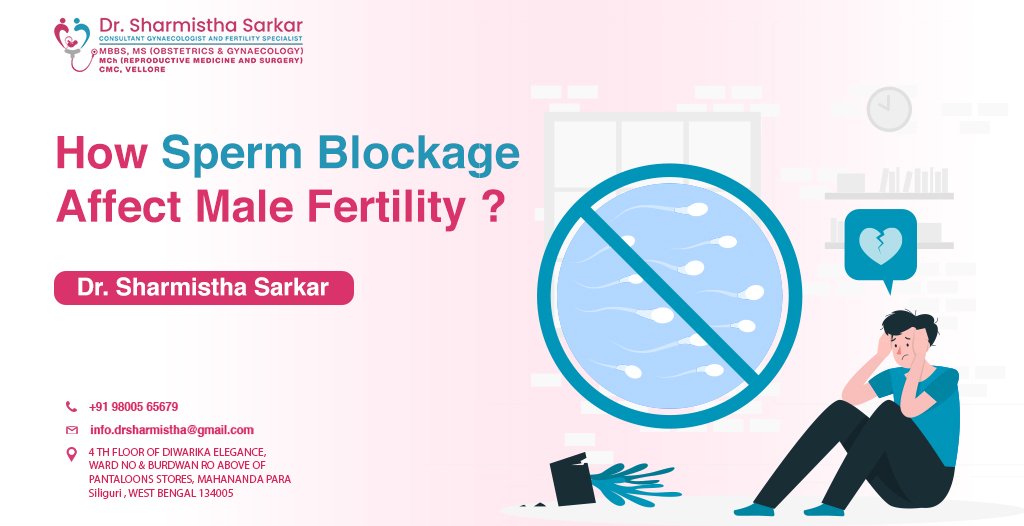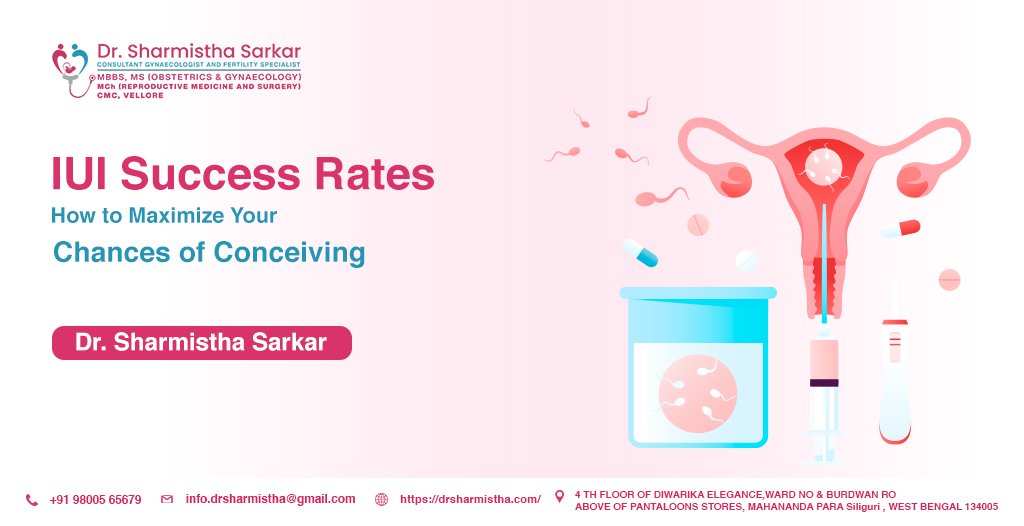How Sperm Blockage Affects Male Fertility
Are you experiencing problems conceiving? Male-factor infertility can be a contributing factor. Remember that male fertility can be reduced by various underlying health conditions and infections. One such cause can be sperm blockage where the sperm flow inside the male reproductive system is physically obstructed. If you have been experiencing any symptoms of sperm blockage then you must seek early diagnosis and treatment to improve your fertility rates. Dr. Sharmistha Sarkar is a reputed fertility doctor in Siliguri who can identify the main cause of sperm blockage and advise the best treatment for it. With years of experience, she can precisely cure your condition while offering you the chance to enjoy parenthood. Through this blog, you can learn about the link between sperm blockage and infertility and its available treatment options. Understanding Sperm Blockage Sperm blockage is the most common male fertility issue where the sperm flow is obstructed. This blockage can happen in various areas of the male reproductive system which include epididymis, ejaculatory ducts, or vas deferens. Herein, you must know that there can be various underlying causes of sperm blockage such as infection in the testicular tubes, injury in these tubes, and vasectomy. Even in some cases, this sperm blockage can happen when there is a failed attempt of vasectomy reversal. Although the symptoms of sperm blockage are not prominent, there are certain signs which can help the doctor detect it. Some such signs indicating sperm blockage are pain during ejaculation, low sperm count, and reduced sperm volume. If any of these signs are noticed then Dr. Sharmistha Sarkar may advise diagnostic tests to determine the accurate cause and location of the blockage. Remember that ejaculatory duct obstruction is a common type of sperm blockage which can be a major male fertility concern. What Is The Relationship Between Sperm Blockage And Male Fertility? Here are some of the ways through which sperm blockage affects male fertility- 1. Obstructive azoospermia If you’re experiencing male infertility then a major cause can be obstructive azoospermia and this infertility issue is often associated with sperm blockage. Azoospermia mainly happens when sperm is produced effectively but cannot be ejaculated. Any blockage in the male reproductive tract is the key reason behind this condition which is stopping the sperm from traveling during ejaculation. As a result of this condition, your semen sample will have no healthy sperm which is required for fertilization. 2. Reduced sperm motility Sperm blockage is associated with reduced sperm motility which is a major element for a successful conception. Men suffering from the blockage often have sperm that have difficulty to move or swim effectively. This reduced motility makes the sperm harder to reach the eggs for fertilization. 3. Low sperm count Low sperm count is another side effect of sperm blockage that can make it harder to conceive. In low sperm count, a man has a very minimal amount of sperm in the semen sample which creates fertility problems. If you suffer from low sperm count then you can experience the symptoms of low sex drive, erection difficulties, and decreased facial hair. 4. Ejaculation problems Remember that even minute obstructions in the reproductive tract can lead to major fertility challenges among men. There are several types of ejaculatory problems which can severely compromise male fertility. One such condition is sperm blockage which can manifest with much pain during ejaculation. Therefore it becomes difficult to conceive through natural means. It causes effect at not only the physical level in relation to fertility but also induces much psychological stress which further perpetuates problems towards conceptions. 5. Reduced chances of fertilization Indeed, for conception to occur, the male must produce sperm capable of surviving for at least a short time up to the time when it has an egg from the female. Blockage in sperm somehow obstructs these aspects from coming into contact with each other during a fertilization process like sperm quality and its movement during transportation. With the blockage of these structures, male fertility rates decrease while chances of conception diminish. To facilitate maintaining fertility for a future healthy pregnancy, the causes or underlying factors need to be completely cured to ensure no more sperm blockages. How Sperm Blockage Is Treated To Enhance Fertility? The treatment for sperm blockage highly depends upon the severity and location of the obstruction. There are various available surgical and medical interventions that Dr. Sharmistha Sarkar may advise to treat these blockages effectively. ● Vasoepididymostomy The Vasoepididymostomy procedure is referred to as a microsurgical procedure for correcting sperm blockage that occurred due to infections and other reasons. In this process, the blockage is removed by joining the vas deferens to the epididymis. In some cases, this surgery can also be performed by doctors to reserve a vasectomy. ● Vasectomy Reversal Various surgical techniques are used for vasectomy reversal if it is found to be the main reason behind sperm blockage. This is a fertility-restoring surgery where the vas deferens is again reconnected so that it can transport the sperm for successful fertilization. ● TURED As said earlier Ejaculatory duct obstruction is the most common form of sperm blockage and to treat this condition, TURED (Transurethral Resection of the Ejaculatory Ducts) is performed by the doctor. In this minimally invasive procedure, a cystoscope is used to locate and remove any present obstructions in the ejaculatory ducts causing male fertility problems. This surgery increases your likelihood of a natural conception while allowing the sperm to follow normally. More than 75% of men who have undergone this surgery have experienced an improvement in sperm motility and count. ● Vasovasostomy Vasovasostomy is a minor form of surgery that is carried out to remove blockages in the vas deferens. Vas deferens, it has to be noted, is the most vital duct in the male reproductive system, the one responsible for carrying the sperm from the testis. Therefore, by removing blockages in such tubes, you can preserve your subsequent fertility, as sperm would now flow freely and reach the
How Sperm Blockage Affects Male Fertility Read More »



